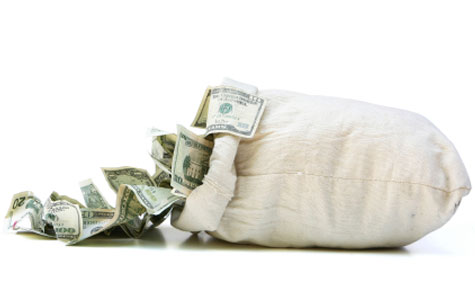Poker Bankroll Management | Your Poker Bankroll: Going Pro
Your Poker Bankroll: Going Pro

The second part of Bankroll Size series: This is the last half of the bankroll article focusing on the size of bankroll needed to play effectively and live as a professional poker player.
When all you want is go pro
This is very tricky. Most players who have dreams of going pro base their bankroll size on the numbers I gave for just an obsessed player. The main shortcoming is that this never considers what is known as proper living.
A player who is obsessed, all you do is try to earn some cash and make your life worth living. The poker bankroll you have is used strictly to play poker and most importantly earn cash without your quality of life getting affected by either variance or swings.
The moment you begin playing professionally, the bankroll you have is the only money, and if you have not made substantial savings you can comfortably live on, you will be forced to depend on your bankroll and poker earnings.
1. A Bad Month
It is always a common thing for full fledged players going on some very long losing streaks. Our approach to this scenario is going to be moderate. Let us say the bankroll you have is average, and for each overly tight conservative game, you sport $ 3,000.
You happen to break even on a given month because it is unfavorable for you. If you are the obsessed type of players, you still go on with a high bankroll. For a pro, there is a problem. You did not lose cash, and on the other hand, you did not make any. Meaning your normal life has to be paid for from the bankroll you have.
Depending on your living standards, you have to pay for all expenses. Again, let us say you can pay all these comfortably and for $1,000 each month, you can live comfortably.
You bankroll is now at $2,000.
The following month, you happen to make $ 1,000 overall, this goes to addressing your expenses for that month, meaning on your bankroll, you are $1,000 down still, having not lost anything. If another month like the first comes your way, in total you will be still $1,000 total, having not recorded any loss in any month still.
In-order to have some money back, what you make must be able to address your expenses and some surplus on that month. Incase the limit you are playing at is very low; this gets harder than it actually seems.
2. When it gets worse
In a situation worse than the first one and you happen to lose a total $1,000 in the first month, and the living expenses on top, you go into the second month with a bankroll of $1000. Incase breaking even is all you manage in the month, you are literally broke.
Professional losers going on these losing streaks for even above six months is not uncommon, and where after just two months you are broke, it will be extremely difficult settling your living expenses out of the bankroll you have.
Going back to the spot you started is extremely difficult till you calculate carefully and know how best to do it. If you dream of success, plan ahead for the worst. Simply be ready for it.
You need to have a minimum of 2-6 months savings incase of anything and on top of that a full bankroll. A good bankroll should therefore range around 50Bis cheap living.
Life before everything else
Incase you cannot earn any living money in the whole month you have played; your living fund should provide it. If you make surplus cash the profit has to go into that living fund. Grow the bankroll or save cash only when all expenses for any month are fully settled and your bankroll is full like before.
Again, this will not be able to compensate for any serious meltdown, or one scary downswing. I have witnessed incidences of individuals losing $1,000 in a single session of a buy-in game of $200. It is not strange you losing easily $4,000 a month.
This means you are not fully covered, and getting into debts of $1,000 is possible. You need preparation to cover this.
Always remember life comes first. If it becomes clear to you that beating a game you felt you could win is impossible, quit while the cash you have is enough to meet your living expenses for as long as it is going to take you to get a real job.
Playing poker at a professional level needs quite an investment than it actually seems. Incase the cash you have been making playing with obsession has been consistent for the past year; the capital is still required to make this move. Without a good bankroll, continuing playing is going to depend on your luck.




0 Comments
Leave a comment and earn 5 f-pointsLeave a comment